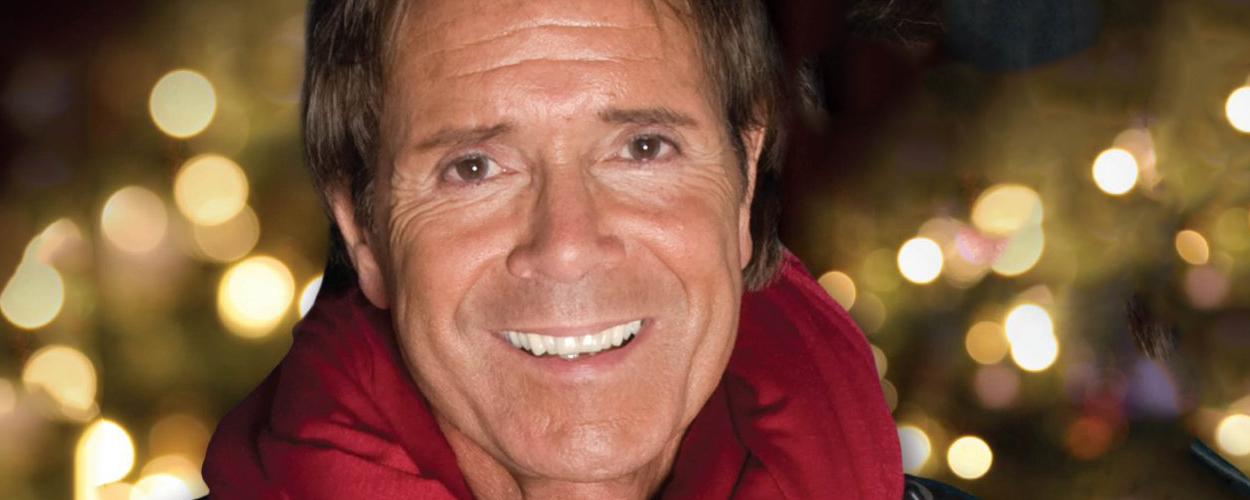This website uses cookies so that we can provide you with the best user experience possible. Cookie information is stored in your browser and performs functions such as recognising you when you return to our website and helping our team to understand which sections of the website you find most interesting and useful.
Artist News Legal Media
Cliff Richard backs petition demanding anonymity until charge for those accused of sexual offences
By Chris Cooke | Published on Tuesday 2 July 2019

Cliff Richard and broadcaster Paul Gambaccini were in Westminster yesterday to launch a petition calling for a new law to grant anonymity to anyone accused of a sexual offence until they are actually charged.
The petition, on the Parliament website, says that such a rule would “provide balance in the criminal justice system since complainants have anonymity for life” and would “protect the reputations of all innocent suspects, whether well-known or not, from the lasting stigma of a false sexual allegation”.
Richard and Gambaccini both have personal experience of being accused of sexual offences, of those accusations being subject to police investigations and intense media scrutiny, but said investigations never actually resulting in any charges.
Richard, of course, successfully sued the BBC over the way it reported on a police raid at his Berkshire home in 2014 which was linked to allegations of historical sexual abuse. A judge concluded that the BBC’s coverage of the raid was in breach of the Human Rights Act, which says that “everyone has the right to respect for his private and family life, his home and his correspondence”.
However, the ruling in that case related to the context and style of the BBC’s reporting on the police raid, not the fact it reported on the allegations made against the pop star even though police were yet to charge him – and, indeed, never did.
Of course, none of this is a new debate. There have long been discussions as to whether or not those accused of sexual offences should enjoy the same anonymity as alleged victims – and, indeed, at one point UK law actually provided anonymity to both parties.
Many argue that the problem with providing anonymity to alleged offenders is that it makes it harder for police to gather evidence, as witnesses and other victims may come forward once initial allegations of sexual assault are made public. Some also question why those accused of sexual assault should be treated any differently than those facing allegations of other kinds of assault, or indeed any other crime.
Those on the other side of the argument say that allegations of sexual assault are particularly damaging to the reputations of the accused, and that reputations can remain tarnished even when police decide not to press charges or the accused is found not-guilty in court. And, the petitioners would likely add, they are only seeking anonymity until the point that charges are made, after which allegations would be made public and those who could help police and prosecutors with their case could come forward.
According to the BBC, Richard, standing alongside Gambaccini outside Parliament, said: “We have both been through the mill. When you know you didn’t do it, you feel you’re in a hole you can’t get out of”. Asked about the possible negative impact of any new anonymity rule on victims of sexual assault, the musician added that they were seeking a “compromise” that would help “re-adjust the balance” that, he said, was currently stacked against the accused.
There are, unsurprisingly, critics of the new rule Richard and Gambaccini are proposing. Katie Russell of the charity Rape Crisis said yesterday: “It’s current best practice for suspects not to be named publicly until after they’ve been charged with an offence, unless the police judge there to be a specific investigative reason for doing so. This was reviewed by the Home Secretary in relation to sexual offences only a few years ago, and it was concluded that there were no grounds for treating suspects in these cases differently”.
“Rape Crisis agrees with [that] review’s conclusion that there are no grounds for changing the law specifically in relation to those suspected of sexual violence and abuse crimes”, she added. “Giving these suspects exceptional treatment compared to those suspected of similarly serious and stigmatising crimes would inevitably reinforce the public misconception … that those suspected of sexual offences are more likely to have been falsely accused than those suspected of other types of crime”.
In an interview earlier in the day with Radio 4’s ‘Today’ programme, Gambaccini had said: “There are actually two crises [at the moment] – one is a sex abuse crisis and the other is a false allegation crisis. When you solicit more accusations, most of them turn out to be false”. The new rule he and Richard are backing seeks to alleviate the negative impact of the latter crisis.
But in her response, Russell insisted that: “So-called false allegations of rape, sexual abuse and other sexual offences are rare, while experiences of sexual violence and abuse are far more common than most people appreciate. But disproportionate media focus on so-called false allegations, and the subsequent widespread myth that they are common, contribute to an environment in which it’s very difficult for victims and survivors to talk about what’s happened to them and seek the support and justice they want, need and deserve”.
The petition launched yesterday has now been signed by more than 15,000 people. At 10,000 signatories the government is obliged to respond. More than 100,000 people need to sign up for the issue to be considered for a parliamentary debate.





